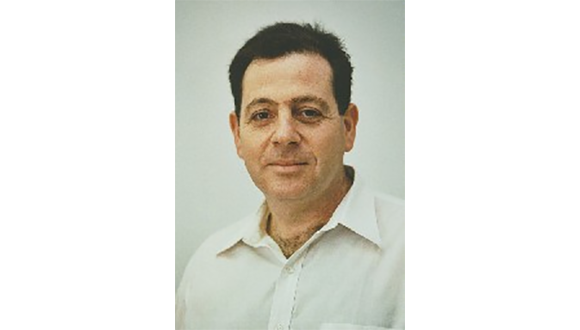|
Oved Yosha was a prominent figure in Israel's community of economists, as well as a distinguished and highly regarded economist in academic circles in Europe and in the US.
His contributions to several fields of academic research in Economics were outstanding.
Oved was a dedicated teacher, who spent much time and effort with his students and won their admiration and affection.
He also excelled as Head of the Graduate Program of the Eitan Berglas School of Economics at Tel Aviv University for the past 5 years, making an extremely valuable contribution to the growth and quality of the program.
Through continued cooperation with the Bank of Israel, Oved had substantial influence on several aspects of economic policy, most notably on the reform of the financial system in Israel.
Oved began his career in economics at a relatively late age, after spending many years as a senior officer in the Israeli Navy.
He completed his undergraduate studies at Bar Ilan University in 1984 and his MA at the Hebrew University in 1988.
He continued his studies at Harvard University, and graduated in 1992 with a Ph.D. in Economics.
Oved served as an assistant professor at Brown University, and starting in 1994, made Tel Aviv University his academic home.
He moved quickly up the academic ladder and was promoted to Associate Professor in 2002.
Oved's research interests spanned several fields.
Some of his early theoretical papers (with Roberto Serrano) focus on markets with "pairwise meetings" (between buyers and sellers).
From this, his interests evolved into the study of financial systems where there are relationships between financial intermediaries and firms, in contrast to other systems where intermediation is carried out by large "anonymous" markets.
He spent several years doing research on what he liked to call "Comparative Financial Systems", making a substantial contribution to the growing literature in this field, and spanning a wide range of issues.
Among them, he studied information disclosure and the choice of financing methods, the tradeoff between competition and stability in financial systems, the costs and benefits of universal banking, large shareholders and corporate governance, and the rationale for state financing in VC contracts.
Together with his shift of focus towards financial systems Oved became more interested in empirical work, although he continued to enjoy reading, writing, and teaching economic theory throughout his career.
Oved's academic interest and expertise in financial systems exerted continued influence on policy making, especially within the Bank of Israel.
He helped make the study of the financial system an integral part of the Bank's review of the Israeli economy.
His ideas, published also in a variety of outlets which were more accessible to the general public than the prestigious academic journals in which much of his research appeared, influenced the views of several blue-ribbon committees, appointed to propose measures of reform in Israel's financial system.
Oved's second line of research focused on risk sharing between states, regions and countries.
In a series of papers Oved, together with Bent Sorensen and others, developed techniques to identify and measure channels of risk sharing between economic units.
Risk sharing, or the smoothing of economic shocks, takes place through financial markets, as well as through government programs and taxes.
This line of research, which was more macro-economic in nature than Oved's work on financial systems, proved particularly fruitful. The extent of risk sharing between economic units has important implications for economic specialization, fiscal policy, consumption patterns, output fluctuations, and more.
Oved's articles on these subjects appeared in the most prestigious journals, such as the American Economic Review, the Quarterly Journal of Economics, and the Journal of Political Economy.
These contributions are widely regarded as pioneering work that will have a lasting and profound impact on the conduct of research in this area.
It is impossible to complete the description of Oved's academic career without reference to his qualities as a teacher.
Oved took his teaching obligations extremely seriously, loved teaching and excelled in it, enjoyed meeting with his most promising students over coffee to discuss their theses, and spent much energy and thought on their progress.
Reflecting his outstanding talents, Oved won awards for excellency in teaching at Tel Aviv University two years in a row.
Some of his students became his co-authors, and they, as well as his other students, colleagues, and friends, will all miss him very much.
Beyond that, Oved's made a key contribution to the Eitan Berglas School of Economics, by leading the graduate program (both the MA and the Ph.D.) for the past five years, and making them flourish to an unprecedented extent.
During his tenure as Head of the program the number of students increased dramatically, and the quality of the core curriculum reached a high mark.
Moreover, Oved set up a highly efficient, orderly and fair system of governance, created a clear, well thought out set of procedures and rules, and managed the whole operation with enormous dedication and care.
Oved fought courageously for about a year against cancer, finally succumbing to it on August 7, which in the Hebrew calendar is "Tisha B'Av" (the day when the first and second Temples fell).
Oved was a prominent economist, an admired and loved teacher, a respected and dedicated colleague, a straight and principled person, a loving and caring husband and father of three tender children.
The loss and pain are immense for all.
|


